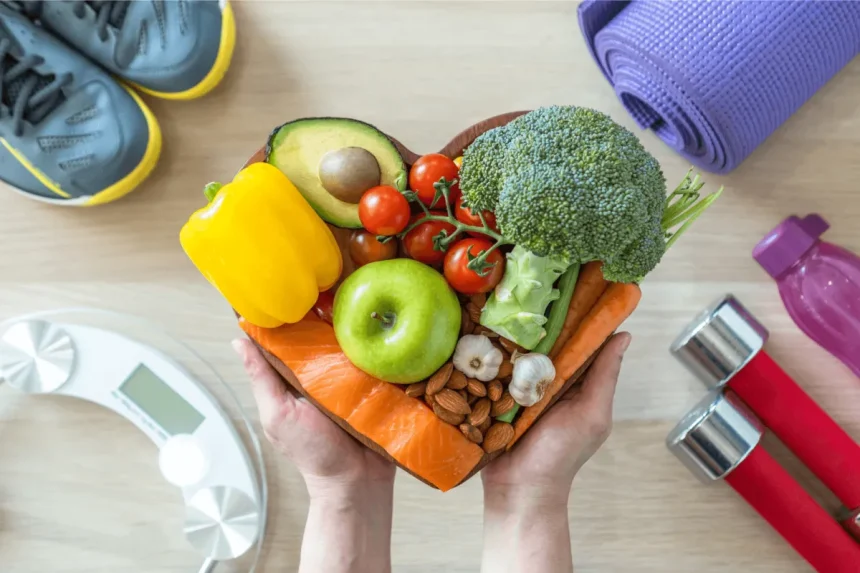Are you searching for the perfect bariatric tea recipe to support your weight loss and post-surgery health? Finding delicious, low-calorie teas that fit your bariatric diet can feel tricky, but it doesn’t have to be! At Aura, we’ve crafted five easy bariatric-friendly tea recipes to boost hydration, soothe digestion, and spark your metabolism. As someone who understands the challenges of life after bariatric surgery, I’m excited to share practical, tasty solutions that work. These recipes use simple ingredients you likely already have, making wellness both achievable and enjoyable. Ready to sip your way to better health? Let’s dive in!
Why Bariatric Tea Is a Game-Changer for Weight Loss
Bariatric tea is more than just a warm drink—it can be a powerful tool for weight loss after surgery. Staying hydrated is key in any bariatric diet, and tea helps with that while adding benefits like supporting digestion and regulating blood sugar levels. Many ingredients in bariatric-friendly tea have natural anti-inflammatory properties, which can help your body heal and feel better as you adjust to your new eating habits.
Because teas are usually low in calories and packed with nutrients, they fit perfectly into a post-bariatric surgery diet. They can keep you feeling full, boost your metabolism, and soothe digestion without adding extra calories or sugar.
That said, it’s important to talk with your doctor or dietitian before adding any new tea to your routine. They can make sure the ingredients are safe for you and won’t interfere with any medications or health conditions. This way, you get all the benefits without any risks.
Key Ingredients for Bariatric-Friendly Teas
When making bariatric tea recipes, choosing the right ingredients is crucial for supporting your weight loss and overall health. Here are some common ingredients you’ll find in effective bariatric-friendly teas:
- Green Tea: Packed with antioxidants, green tea helps boost metabolism and supports fat burning. It’s a low-calorie option that fits perfectly into a post-bariatric surgery diet.
- Ginger: Known for aiding digestion and reducing nausea, ginger also has anti-inflammatory properties. It’s gentle on the stomach, which is ideal after surgery.
- Chamomile: Great for calming the digestive system, chamomile supports relaxation and helps ease bloating. It’s caffeine-free, making it perfect for evening drinks.
- Cinnamon: This spice helps regulate blood sugar, which is key for managing appetite and energy after bariatric surgery. It also adds a touch of natural sweetness without extra calories.
- Fenugreek: Fenugreek seeds boost digestion and may help with blood sugar control. They work well in teas that aim to curb appetite and improve metabolism.
- Lemon: Adding lemon gives your tea a fresh zing while providing vitamin C and aiding hydration—a must in any bariatric diet.
- Turmeric: Known for strong anti-inflammatory effects, turmeric supports recovery and overall health. Combining it with black pepper improves absorption.
Tips for Sourcing Ingredients Locally and Affordably
- Check out local farmers markets and health food stores for fresh ginger, turmeric, and lemons.
- Bulk bins at grocery stores often have affordable dried chamomile, cinnamon sticks, and fenugreek seeds.
- Look for organic options when possible, but non-organic versions also work well if budget is a concern.
- Buying in small batches helps keep ingredients fresh and prevents waste.
Using these common, easy-to-find ingredients makes bariatric tea recipes both practical and effective for everyday wellness.
5 Easy Bariatric Tea Recipes for Everyday Wellness
Here are five simple bariatric-friendly tea recipes you can enjoy daily. Each supports hydration, digestion, or metabolism without adding extra calories. These teas fit well into a low-calorie bariatric diet and are easy to customize.
1 Classic Green Tea with Lemon and Ginger
Ingredients:
- 1 green tea bag
- 1 cup hot water
- ½ lemon, sliced
- 1-inch fresh ginger, sliced
Instructions:
- Steep the green tea bag in hot water for 3-5 minutes.
- Add lemon slices and ginger. Let it steep 2 more minutes.
- Strain if desired.
Benefits: Antioxidants in green tea boost metabolism and support digestion. Lemon adds vitamin C, and ginger aids digestion and reduces nausea.
Prep time: 7 minutes | Servings: 1 | Calories: 5 or less
Customization tips: Swap lemon for lime or add a teaspoon of honey for sweetness if allowed.
2 Cinnamon Fenugreek Metabolism Booster
Ingredients:
- 1 teaspoon ground cinnamon
- 1 teaspoon fenugreek seeds
- 1 cup boiling water
Instructions:
- Steep cinnamon and fenugreek seeds in boiling water for 10 minutes.
- Strain before drinking.
Benefits: Helps regulate blood sugar and boosts metabolism, making it ideal before meals to curb appetite.
Prep time: 12 minutes | Servings: 1 | Calories: 0-5
Tip: Fenugreek can be bitter—try adding a splash of lemon juice to improve taste.
3 Chamomile Lavender Soothing Tea
Ingredients:
- 1 teaspoon dried chamomile flowers
- ½ teaspoon dried lavender buds
- 1 cup hot water
Instructions:
- Steep chamomile and lavender in hot water for 5-7 minutes.
- Strain and enjoy.
Benefits: Naturally caffeine-free, this tea supports digestive relief and promotes relaxation — perfect after surgery or in the evening.
Prep time: 8 minutes | Servings: 1 | Calories: 0
4 Turmeric Ginger Anti-Inflammatory Tea
Ingredients:
- 1 teaspoon turmeric powder or 1-inch fresh turmeric root, sliced
- 1-inch fresh ginger, sliced
- 1 cup boiling water
Instructions:
- Steep turmeric and ginger in boiling water for 10 minutes.
- Strain and drink warm.
Benefits: Reduces inflammation and supports healing post-surgery. Fresh turmeric gives a stronger flavor; dried turmeric is more convenient.
Prep time: 12 minutes | Servings: 1 | Calories: 0-5
Tip: Add a pinch of black pepper to increase turmeric’s absorption.
5 Cranberry Hibiscus Weight Loss Tea
Ingredients:
- 1 tablespoon dried hibiscus flowers
- ¼ cup unsweetened dried cranberries
- 2 cups boiling water
Instructions:
- Steep hibiscus and cranberries in boiling water for 10 minutes.
- Strain and chill if you want iced tea.
Benefits: Low-calorie and supportive of fat burning, this tea is refreshing and tangy — great as a midday pick-me-up or after meals.
Prep time: 12 minutes | Servings: 2 | Calories: 5-10
Customization tips: Add a sprig of mint or a squeeze of lemon for extra flavor, especially when iced.
These recipes help keep your bariatric diet low-calorie and nutrient-rich while supporting your weight loss journey.
Tips for Incorporating Bariatric Tea into Your Daily Routine
Adding bariatric-friendly tea to your daily routine can boost hydration, support digestion, and even help manage appetite. Here’s how to make it work for you:
Best Times to Drink Bariatric Tea
- Before meals: Drinking tea about 15-30 minutes before eating can help curb appetite and improve digestion.
- Evening relaxation: Caffeine-free options like chamomile or lavender teas are perfect after dinner to unwind and support restful sleep.
How to Store and Prep Teas for Convenience
- Make in batches: Brew larger quantities and store in the fridge for up to 2-3 days. This is great for iced bariatric teas like cranberry hibiscus.
- Use tea infusers: Keep loose-leaf or powdered ingredients ready in infusers or tea bags to save time.
- Label and date: If prepping blends in advance, labeling helps avoid confusion and ensures freshness.
Pairing Bariatric Tea With Your Diet
- Combine your bariatric tea intake with a balanced, low-calorie diet rich in protein, fiber, and healthy fats.
- Use weight loss tea recipes as a hydration strategy instead of sugary drinks or sodas.
- Remember, tea supports but doesn’t replace a nutrient-dense bariatric meal plan.
Caution and Moderation
- Avoid drinking excessive amounts—limit to 3-4 cups daily to prevent side effects.
- Watch for ingredient sensitivities or allergies, especially with spices like cinnamon or turmeric.
- Always check with your doctor or dietitian before making bariatric tea a regular part of your routine, particularly post-surgery.
Following these simple tips helps you safely enjoy bariatric tea while supporting your weight loss and wellness goals.
FAQs About Bariatric Tea Recipes
Here are some common questions about bariatric tea recipes with straightforward answers you can trust.
Can I drink bariatric tea daily?
Yes, most bariatric-friendly teas can be enjoyed daily, but moderation is key. Drink 1-3 cups a day depending on the ingredients and your body’s response. Always check with your doctor, especially right after surgery.
Is caffeine safe after bariatric surgery?
Caffeine can be safe in small amounts, but it varies per person. Green tea has moderate caffeine and can support metabolism, while chamomile or lavender teas are caffeine-free options if you’re sensitive. Avoid too much caffeine to prevent dehydration or digestive upset.
What’s the best tea for digestion post-surgery?
Herbal teas like chamomile, ginger, and fennel are great for soothing digestion after bariatric surgery. They help reduce bloating and support gentle digestion without added calories.
Can bariatric tea help with blood sugar control?
Certain ingredients like cinnamon and fenugreek are known to help regulate blood sugar levels, which is important after bariatric surgery. Including these in your tea recipes can support your metabolic health.
How do I know if I’m sensitive to any tea ingredient?
Start with small amounts and monitor how you feel. If you notice any stomach upset, allergic reactions, or increased heart rate, stop using that ingredient and ask your healthcare provider.
Always remember, bariatric tea is a helpful addition to your diet but not a replacement for balanced meals and proper hydration. Talk to your dietitian or doctor before making it a regular habit.









